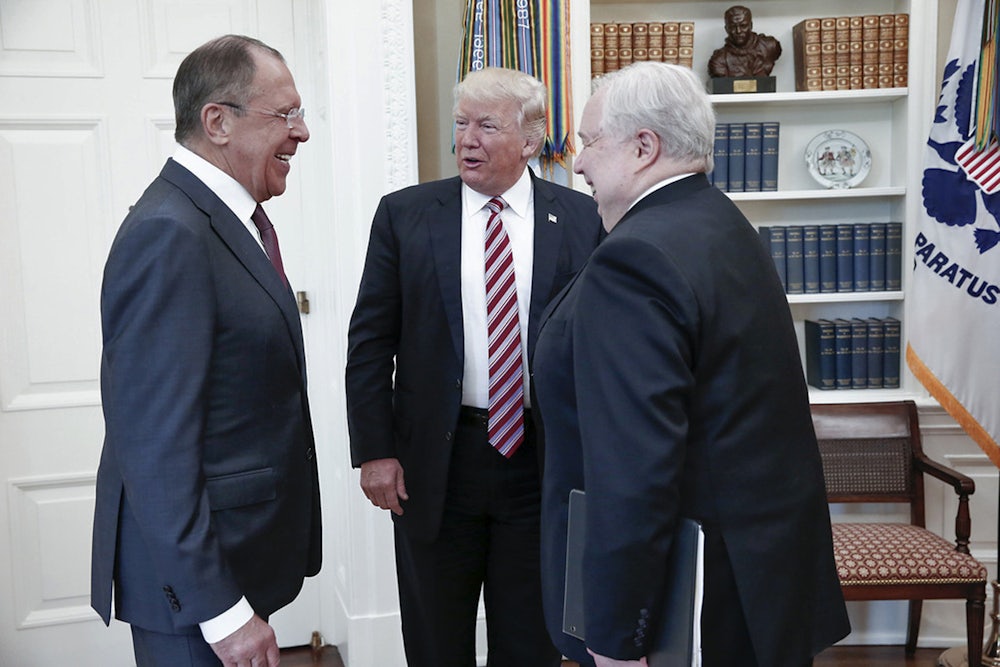The speed and ease with which an authoritarian engineered a hostile takeover of the Republican Party revived liberal interest last year in the work of the political scientist Juan Linz, whose seminal 1990 essay “The Perils of Presidentialism” theorized that the structure of constitutional democracies like ours doom them to devolve into legitimation crises over time.
Linz initially believed that the American system of government was uniquely immune from presidential peril due to the “diffuse character of American political parties.” But by the time he died in October 2013, the parties had polarized into ideologically disciplined, parliamentary-style parties, and under the stress of that polarization, the system was beginning to creak. (Linz passed away at the outset of a government shutdown, just two years after congressional Republicans had brought the country to the brink of defaulting on its debts.)
These crises, which grew out of conflict between a legislature of one party and a president of the other, reflected the same inherent instability Linz had seen destroy less mature presidential democracies. From the vantage point of one year ago, the rise of Donald Trump looked in many ways like a popular revolt against the crisis-generating gridlock of divided government in favor of autocracy.
From the vantage point of today—as the world learned that now-President Trump “revealed highly classified information to the Russian foreign minister and ambassador” in the Oval Office—Linz’s analysis, corrected for new developments that make America’s political system unique in the world, appears tragically prescient.
The fear that divided government itself would lead to a constitutional crisis and systemic failure passed in November, when Republicans consolidated control over all of its branches. Even in the darkest hours of summer 2011, when the risk of a manufactured national bankruptcy was at its highest, nobody was concerned that the military would rise up to enforce order, as it might in a younger presidential democracy. But it became clear in the Obama years that our governing institutions might not survive polarization-induced paralysis in perpetuity.
What Linz couldn’t have possibly foreseen was that a knavish autocrat would win the U.S. presidency through technically-legitimate-though-undemocratic means, and that he’d be allowed to arson the government by a coequal branch—Congress—that has the power to stop him.
In a profound way, what we’re witnessing right now is an inversion of the dynamics that nearly produced our moment of presidential peril a few years ago. And in an equally profound way, the source of our vulnerability in both instances hasn’t been rogue, unelected figures, but the duly elected members of one party.
The Republican method from 2011 through 2016 was to threaten harm to the country from within Congress, in order to beat back the agenda of the consensus-minded liberal democrat in the White House. The Republican method of the past four months has been to tolerate the threat of harm from within the White House in order to avoid finding consensus with the liberal democrats in the opposition party.
To chase a partisan agenda, Republicans in Congress have abetted a compromised, paranoid, and erratic president. Until four months ago, the party tossed around words like “lawless” and “tyrannical” to describe a Democratic president who promulgated policies they disagreed with; they now absolve a Republican president with vast financial conflicts of interest, who obstructed an FBI investigation of his campaign, and breached national security to impress Russian government officials, on the grounds that at the presidential level, conflicts of interest, firing the FBI director and disclosing classified information aren’t technically illegal. The degree of special pleading we’ve witnessed since Trump secured the GOP nomination would be laughable if a country, and international stability, weren’t at stake.
It is possible to imagine Trump losing the support of congressional Republicans by announcing he won’t approve a tax cut, or losing support of his core supporters through unexpected leniency to ethnic minorities. But it is worth remembering that the backdrop of Trump’s presidency is an anti-majoritarian electoral college victory, which he won with the help of extraordinary interference by both Russian intelligence and now-fired FBI Director James Comey.
The constitutional remedy for an unfit president who violates his oath of office and lacks a popular mandate is impeachment, but impeachment would almost certainly derail the Republican legislative agenda and redound to Democrats’ benefit in coming elections. It is thus off the table.
The government is teetering in Linzian fashion, the country at intolerable risk, because Republicans despise the wishes of the larger half of the country more than they respect the constitution and their oaths to it.
